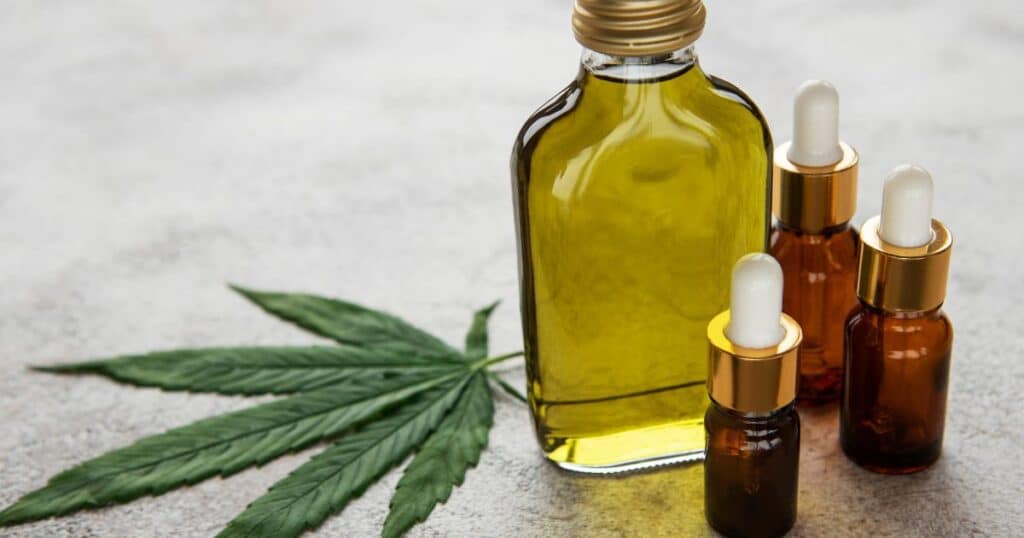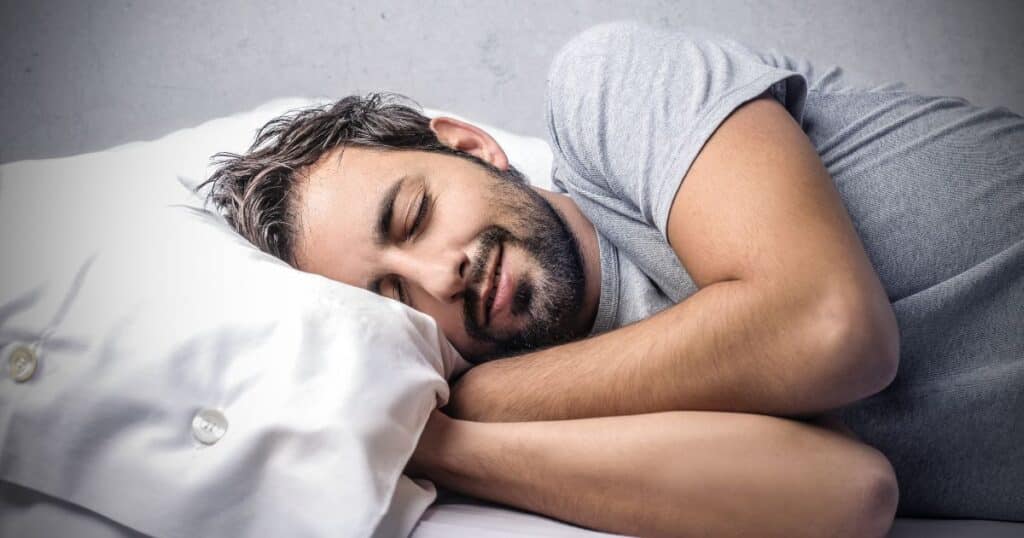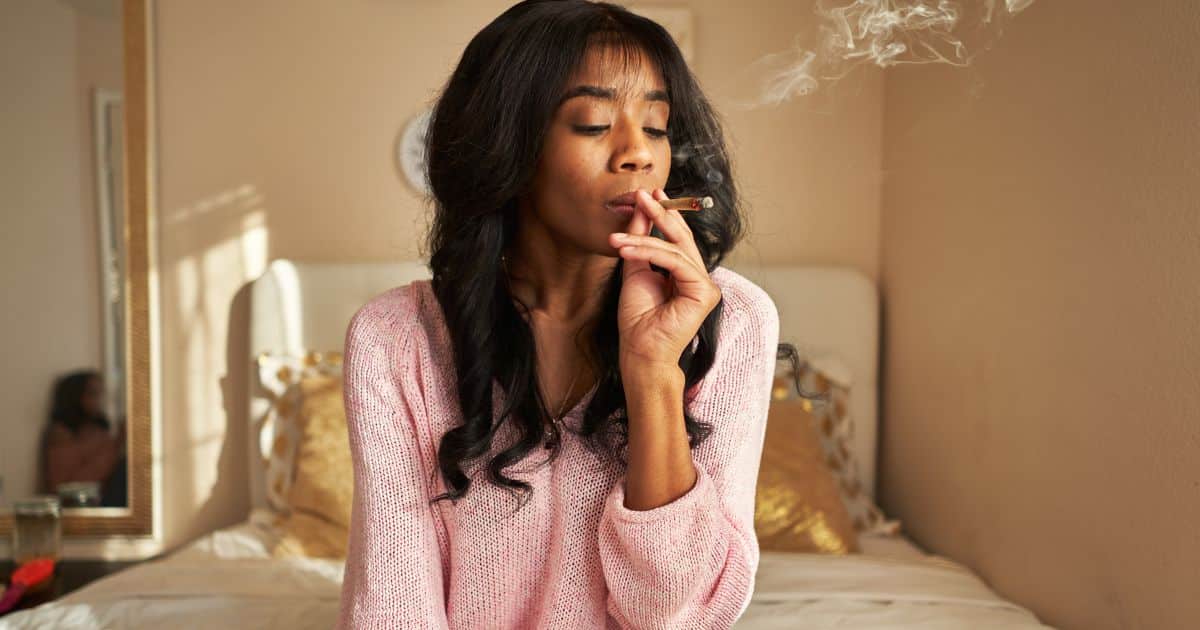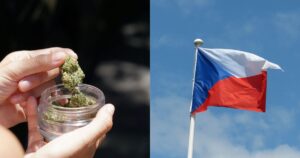As more and more states in the US and countries around the world legalize marijuana, it’s no surprise that consumers are turning to this once controversial plant for a variety of purposes. And now, a “new” trend is emerging – using marijuana as a sleep aid instead of traditional sleep aids like over-the-counter medications or prescription drugs.
A recent study conducted by Washington State University has found that a significant number of participants reported using cannabis every night to help them sleep. This shift towards using marijuana for sleep purposes is proving to be a positive change for many individuals struggling with insomnia and other sleep-related issues.
With this trend on the rise, it’s important to take a closer look at the study and its findings and understand why consumers are increasingly choosing marijuana over traditional sleep aids.
So, let’s delve into the details and explore how marijuana is becoming a preferred choice for achieving a good night’s rest.
Information on the Study
The study, conducted by researchers from Washington State University, was published in Exploration of Medicine. It involved analyzing data from over 1,200 individuals who were aged 18 and above and reported using cannabis for sleep-related issues.
The main purpose of the study was to understand consumer behavior toward using cannabis as a sleep aid and its perceived effects compared to traditional sleep aids.

Participants in the study had various sleep-related issues such as insomnia, difficulty staying asleep, or feeling unrested after a night’s sleep.
Over 80% of survey participants self-reported that they regularly experienced difficulty falling asleep and 61.6% said they had difficulty falling back asleep if they woke up in the middle of the night for no reason, which 67.1% of participants said they did.
Data for the study were provided by Strainprint®, a Canada-based medical technology company.
Results of the Study
More than 80% of the 1,255 cannabis users surveyed no longer using over-the-counter or prescription sleep aids such as melatonin and benzodiazepines.
The study revealed that the most common methods of cannabis administration for sleep purposes were smoking joints and vaping flower. 33.8% of participants used edibles to help them sleep and 14.1% of participants reported using capsules containing THC oil.
When it comes to the components of cannabis that individuals are seeking for sleep, THC, CBD, and the terpene myrcene were found to be the most sought after. These compounds have been linked to relaxation, sedation, and anti-anxiety effects.
“One of the findings that surprised me was the fact that people are seeking the terpene myrcene in cannabis to assist with sleep,” said in a press release, Carrie Cuttler, senior author of the study and associate professor of psychology at WSU. “There is some evidence in the scientific literature to support that myrcene may help to promote sleep, so cannabis users seemed to have figured that out on their own.”
Researchers also found that more than 60% of the study participants reported getting the recommended six to eight hours of sleep when using cannabis solely. Less than 20% reported getting six to eight hours of sleep while using a prescription or over-the-counter sleep aid, or cannabis combined with a sleep aid.
While the study showed promising results for using cannabis as a sleep aid, it’s important to acknowledge that there are potential drawbacks to consider. One of the most commonly reported side effects of using cannabis for sleep is feeling excessively tired or sleepy the next day.
This can be attributed to the sedative effects of THC and CBD, which can linger in the body even after waking up. It’s important for individuals using cannabis as a sleep aid to be mindful of their dosage and timing, to avoid feeling groggy the following day.
Participants were more likely to report red eyes and thirst and less likely to report nausea, anxiety, paranoia, and racing heart as side effects of cannabis relative to other sleep aids.
“In general, the use of cannabis for sleep-related issues was perceived as more advantageous than over the counter medications or prescription sleep aids,” Cuttler said. “Unlike long-acting sedatives and alcohol, cannabis was not associated with a ‘hangover’ effect, although individuals reported some lingering effects such as sleepiness and changes in mood.”
Limitations of the Study
As with any study, there are some limitations to consider when interpreting the results. One potential limitation is selection bias in participants. Since the data were self-reported and reported from a cannabis friendly app, it’s possible that individuals who had positive experiences with using cannabis for sleep were more inclined to participate in the study.
Another limitation is that the study was conducted in Canada, where cannabis is legal for both medical and recreational use. This could have an impact on the results since individuals in locations with stricter cannabis laws may not have access to the same variety and quality of products.
Lastly, there is a lack of control over the quality and dosage of cannabis used by participants. Due to variations in strains and individual tolerance levels, it’s difficult to determine an exact dosage that would be effective for everyone. This could potentially affect the perceived effects of cannabis as a sleep aid.

Overall, the study showed that an increasing number of individuals are turning to cannabis as a sleep aid over traditional medications. The most commonly sought after components in cannabis for sleep were found to be THC, CBD, and terpene myrcene.
While there are some limitations to consider, the results of the study show promising potential for cannabis as a natural and effective alternative for sleep aid. As more research is conducted on the topic and laws surrounding cannabis continue to evolve, it’s likely that we will see an even greater shift towards using cannabis over traditional sleep aids in the future.
This shift could have significant implications for individuals struggling with sleep issues, as well as for the pharmaceutical industry. With fewer side effects and a more natural approach, cannabis may prove to be a net positive for those seeking an alternative to traditional sleep aids.
Enjoyed that first hit? Come chill with us every week at the Friday Sesh for a freshly packed bowl of the week’s best cannabis news!
- Maryland Leads the Way in Cannabis Pardons, Setting an Example for Much-Needed Cannabis Reform
- Military Construction and Veterans Affairs Bill Amendments Could Change Medical Marijuana and MDMA-Assisted Therapy Options for Veterans
- Thailand’s U-Turn on Recreational Cannabis Use
- Chicago Police Department Revises Policy on Searches Based Solely on Marijuana Odor
- Ohio’s Senate Bill 56 Postponed, Leaving Details of Issue 2 Still Unresolved
- Sports Stars and Well Known Entertainers Join Forces Calling on Trump for Cannabis Reform














